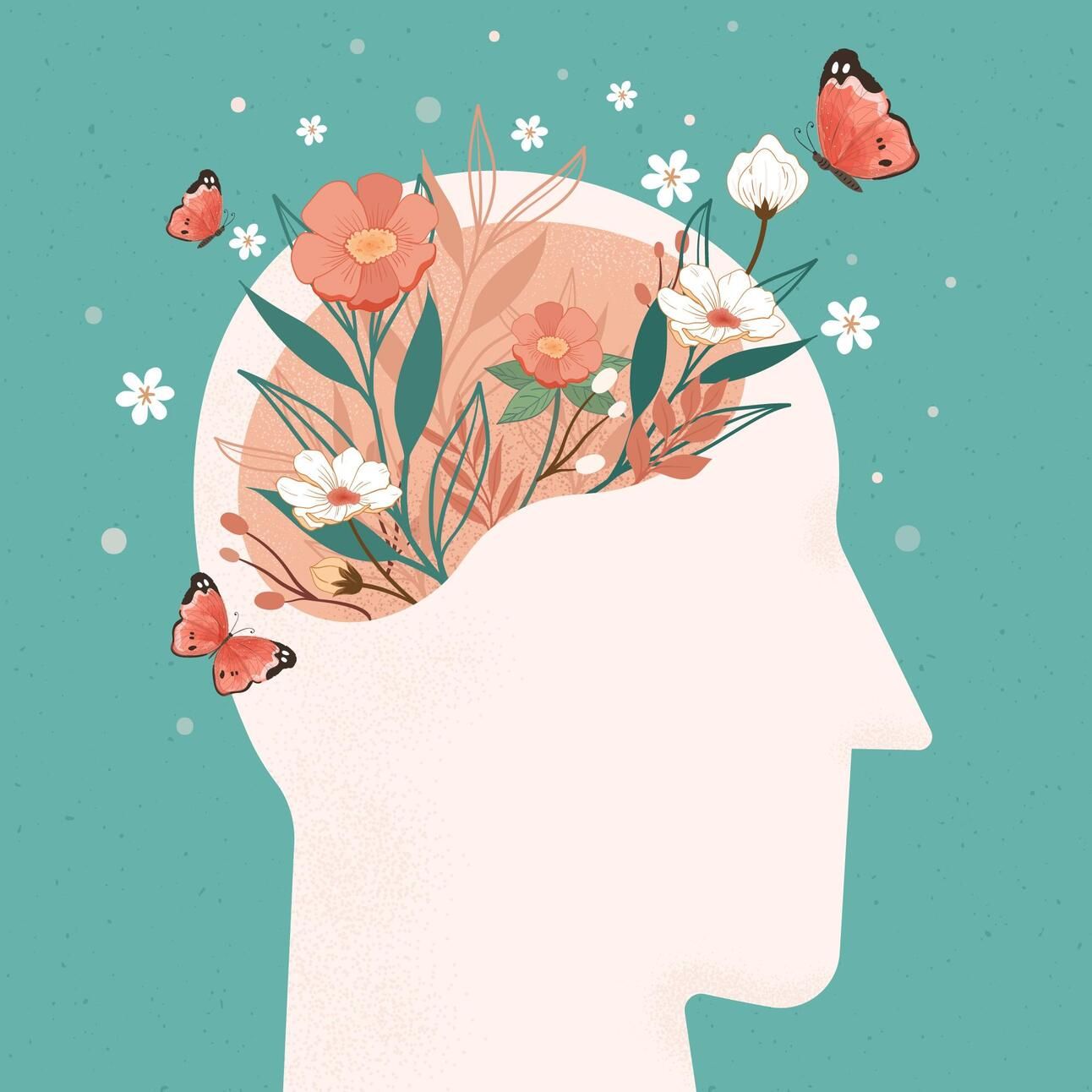
The Livelong Newsletter
Issue 59 | May 16, 2025
Sharing insights to guide your health, wellness, and longevity journey.

Image credit: freepik
Happy Friday,
I think we all deserve a little more self-care, don’t you agree? May is Mental Health Awareness Month and we’re breaking down 10 spring mental health intentions to cultivate more balance, peace, and health…but first, let’s talk about the launch of TWO new Whoop smart bands. ⌚⌚
(RELATABLE) WISDOM FOR LIFE ☺️
I’m staying home today. I have mood poisoning.
👁️🗨️SPOTLIGHT
Age slower with the Whoop 5.0
The next generation of WHOOP health trackers focuses slowing the pace of aging.
Longevity is becoming a major selling point in the wearable devices market, and WHOOP—a leader in health and fitness tracking—has just launched two new devices with features to extend healthspan and slow biological aging.
The low down
The WHOOP 5.0 and WHOOP MG offer a buzzy new Healthspan feature that uses nine core metrics to calculate your ‘WHOOP Age,’ the age of your cells and tissues, and “Pace of Age,” the speed at which cells are aging.
The user gets personalized insights to improve these metrics and slow aging.
Other upgrades include:
🔃 Hormonal insights: track menstrual cycle, hormone fluctuations, and pregnancy on sleep, recovery, and well-being.
🛌 Sleep performance: Upgraded sleep performance and stress monitoring.
🙋 AI assist: AI can help users to break down data and answers health questions.
🩸 Blood pressure readings (only for Whoop MG): WHOOP is beta testing blood pressure readings, which are an important health indicator.
♥️ Heart Screener (only for Whoop MG): Electrocardiogram (ECG) technology can detect atrial fibrillation and irregular heartbeat (not recommended for people with cardiac pacemakers or implantable electronic devices).
But: Despite impressive feature and hardware upgrades (including a 14-day battery life), membership is expensive:
WHOOP One ($199/year). NO access to Healthspan.
WHOOP Peak ($239/year). Access to Healthspan and Pace of Aging.
WHOOP Life ($359/year). Access heart monitor.
🏁 Big picture: Health trackers are in an arms race for anti-aging features, with OURA having launched two new metabolic features prior to the WHOOP 5.0 launch.
People are also resonating with products that offer more ways to access and understand their own personal data.
10 game-changers to improve mental wellness

image credit: freepik
Stress management and mental wellness contribute to happiness, life satisfaction, life quality, and health decision-making. It lowers the risk of different diseases too, helping you flourish and live longer.🪷
Here are 10 mental health tips you can try to improve how you think, feel, and act to support long-term wellbeing.
Acceptance: Normally, we resist or turn to a ‘quick fix’ to ease the discomfort of stress or pain. And though it will take practice, acknowledging and accepting an emotion or experience without judgement—or trying to change it—can be a profound tactic that boosts emotional well-being and resilience.
Resilience reduces the risk of death by 53%. 💪
Acupressure: Our greatest mental health tool might be built into our own bodies. In traditional Chinese medicine, accupressure (stimulating certain points on the body) is associated with greater mental well-being and physical health. Try stimulating the Shou san li (LI10) and Heavenly gate points to reduce symptoms of stress and insomnia. ⛅
Body awareness: Body awareness improves the mind-body connection, the relationship between the mind and physical health, according to Positive Psychology. Yoga, body scan meditations, and progressive muscle relaxation are exercises that increase body awareness and alleviate stress to promote total body health.
Do nothing: The demands of daily life can make you feel overwhelmed and emotionally incapable of doing…life 🫨. The antidote is simply to do nothing, according to author and leadership entrepreneur Brené Brown. This can look like walking, doodling, or staring at a blank wall...any act of ‘non-doing’ that gives space for the emotion to pass.
An overwhelmed brain can’t process emotional information well—let’s not make it.

image credit: freepik
Eat seasonal, whole food: “What you eat directly affects the structure and function of your brain and, ultimately, your mood,” writes Harvard Health. You have complete control over your food choices. Get excited about choosing seasonal, whole foods that nourish your cells, reduce inflammation, and boost brain health.
Exercise for joy: Exercise stimulates the release of chemicals that improve mood 😀–including anti-depressant ‘hope’ molecules (myokines)–according to Kelly McGonigal, a Stanford professor, psychologist, and exercise instructor, on the CNN podcast Chasing Life.
Bonus! Exercise in a social setting to reduce loneliness (it’s worse for lifespan than smoking! 🚬) and thank your body during a workout to improve gratitude.
Journal: Expressive writing is a four-day clinically-proven method of journaling that improves biological markers of mental and physical health. After you’re done? Shift to daily gratitude journaling to start encouraging more happy hormones ☺️.
Travel: 🌴 Travel slows aging! Travel promotes socialization, time in nature, and physical exercise, which cultivate mental and emotional well-being. It is also a great way to reduce stress–more than a healthy lifestyle alone–and can stave off mental decline. Bon voyage!

Travel prolongs lifespan. Image credit: Freepik + Erin
Try a new wellness technology: Level up with advanced wearables and technologies that get to the root of wellness—whether it’s rewiring brain waves, increasing neuroplasticity, fundamentally changing sleep patterns, or having a therapist in your back pocket.
Use social media the RIGHT way: 🛜 Social media can improve social connection and mental wellness if used properly. Try following people and pages who post credible, solutions-driven content that uplifts you. Continue to limit screen time, and try joining online groups that have in-person gatherings.
LIVELONG+
📚 READ: The Cancer Code by Dr. Jason Fung.
🎧 LISTEN: How to spot pseudoscience and make more sense of the world.
🍽️ TASTE: The gut-healthy cucumber probiotic drink consumed in India.
💬 SHARE: Share this newsletter to spread the knowledge.
🙂 REWIND: Salmon sperm for beautiful skin.
Quiz results
Last week, we asked: Which is NOT a macronutrient? (Macronutrients are essential nutrients that give energy and structure to our bodies).
Protein
Fat
Carbohydrates
Antioxidants
Answer: Antioxidants. 🫐 These vitamins (and sometimes micronutrients) are not a main source of energy, but they have a significant role in protecting against cellular damage.
We want to know...
Until next time,

Please note: Some links in this newsletter are affiliate links, meaning we may earn a small commission if you decide to make a purchase through them. This helps us continue to bring you credible and actionable health and longevity insights at no extra cost to you. Thank you for your support!
Always seek the advice of a physician or other qualified healthcare professional before starting any exercise, wellness, or health program. Nothing in our content, products or services should be considered, or used as a substitute for medical advice, diagnosis, or treatment. Livelong is a media company and not a medical provider. We try to give the most accurate possible, but sometimes information is subject to change.
Longevity Media LLC
Look good, feel better, live longer.

